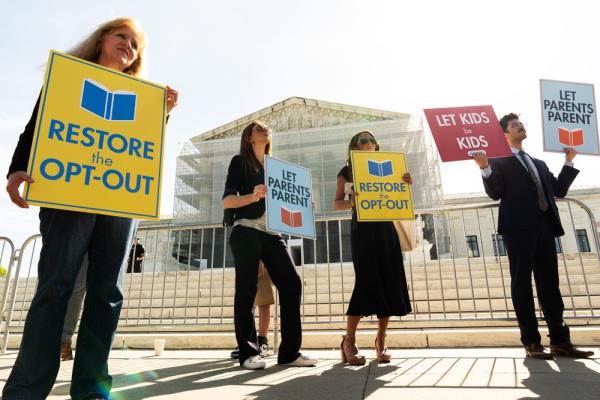May 14, 2025
As protesters gathered on the front steps of the Supreme Court, the justices inside heard arguments in a Maryland case that could determine whether parents, due to their religious beliefs, have the right to pull their children out of classes that teach about gender and sexuality.
Read the Full Article

Already a subscriber? Login
